|
"Scholars
say... "
Scholars are our modern priests. You
don't have to think. Our guys have done that
for you.
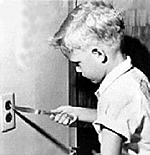 Why
doesn't electricity leak out of sockets, and
dribble down the wall? I don't know. Every day,
all day, we're confronted by technology we understand
only vaguely. We rely on experts. Experts know
and do amazing things. Experts are a huge
part of modern culture. So when believers
tell stories about Jesus, the "facts"
they make up naturally include experts —scholars. Why
doesn't electricity leak out of sockets, and
dribble down the wall? I don't know. Every day,
all day, we're confronted by technology we understand
only vaguely. We rely on experts. Experts know
and do amazing things. Experts are a huge
part of modern culture. So when believers
tell stories about Jesus, the "facts"
they make up naturally include experts —scholars.
The point is not that scholarship is dumb.
It isn't. The point is that when people who
already know Jesus is real tell stories about
Jesus, they make up facts about scholarship.
They use "scholars say" to fill
in gaps in their story. That's myth making.
It's fun to watch.
 Spotting
"Scholars say..." Spotting
"Scholars say..."
As you read and listen, notice how very
very often apologists say, "scholars say...".
Of course there are some things that are true
that scholar-experts really do say, so to spot
myth making you have to know enough about the
discussion to spot when the thing scholars supposedly
say is really something scholars don't
say, and the story teller is just making stuff
up. That's not easy, which is why this POCM
page is for advanced students like you. All
this is complicated by the fact that even scholars
say, "scholars say." P52 "scholarship"
is an example
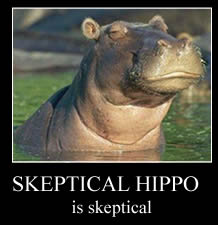 Enjoying
"Scholars say..." myth making Enjoying
"Scholars say..." myth making
Once you know to look for it, you'll see
"scholars say" myth making everywhere.
Everywhere. Prepare to be amazed.
Once you know that "scholars say"
myth making is a thing, you'll start to wonder,
"Is it really true, what that guy just
said? Do scholars really say that?" Go
look it up for yourself.
Fun example: the Minimal Facts Myth
For modern "scholars say" myth
making on raging steroids, it's hard to
beat the Habermas
Minimal Facts Proof of Jesus' Resurrection
now popular
on the Sunday school apologetics circuit.
Hillbilly
Bible Scholar Dr. Gary Habermas, PhD, MA,
BRE, OBE, Chairman of the Department of Philosophy
& Theology at Liberty University, the Largest
Christian University in the World, and Distinguished
Research Professor holding an Appointment teaching
in the PhD Program, has come up with a list
of "facts" that he has convinced himself
"most biblical scholars" agree on.
The idea is to prove the bible stories about
Jesus' resurrection are true, without using
the words "because the bible is true."
According to Distinguished Professor Dr. Habermas,
Jesus' resurrection is real ...because scholars
say. You don't have to think. Our guys
have done that for you.
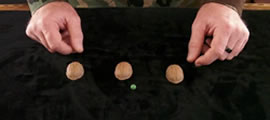 Distinguished
Professor Dr. Habermaseses' hands are moving
fast, so pay attention. Remember, all the
world's available "facts" about Jesus
come from the New Testament. But Distinguished
Professor Dr. Habermas doesn't want to say "because
the bible is true." Instead he effectively
says, the bible stories about Jesus' resurrection
are true "because scholars say
the bible stories about Jesus' resurrection
are true." Delicious. Distinguished
Professor Dr. Habermaseses' hands are moving
fast, so pay attention. Remember, all the
world's available "facts" about Jesus
come from the New Testament. But Distinguished
Professor Dr. Habermas doesn't want to say "because
the bible is true." Instead he effectively
says, the bible stories about Jesus' resurrection
are true "because scholars say
the bible stories about Jesus' resurrection
are true." Delicious.
And the bit about "all scholars agree"?
Distinguished Professor Dr. Habermas made
that up.
I really think you should surf right now to
any one of the 17,000 Habermas
Minimal Facts YouTube videos. See how hard
Distinguished Professor Dr. Habermas hits the
scientific-historical hoo-ha. He's using data.
He's using facts. Aw shucks, he's
just following scholars. You don't
have to think. Our guys have done that for you.
See the myth. Enjoy the myth.
|

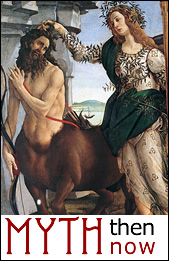
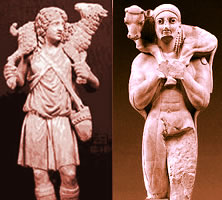 Away
back in bible times Paul and Mark, Matthew,
Luke, and John knew what a God was, and they
knew Jesus was one. So when they told stories
about Him,
Away
back in bible times Paul and Mark, Matthew,
Luke, and John knew what a God was, and they
knew Jesus was one. So when they told stories
about Him,  they
naturally included God properties He must have
had. Divine father, mortal mother. Prophecies.
Powers. Reads minds. Lives in the sky. Like
that. It happened in that order. First
people knew Jesus was a God, then
they told stories about His God properties.
they
naturally included God properties He must have
had. Divine father, mortal mother. Prophecies.
Powers. Reads minds. Lives in the sky. Like
that. It happened in that order. First
people knew Jesus was a God, then
they told stories about His God properties.



 "Scholars
say... "
"Scholars
say... " Why
doesn't electricity leak out of sockets, and
dribble down the wall? I don't know. Every day,
all day, we're confronted by technology we understand
only vaguely. We rely on experts. Experts know
and do amazing things. Experts are a huge
part of modern culture. So when believers
tell stories about Jesus, the "facts"
they make up naturally include experts —scholars.
Why
doesn't electricity leak out of sockets, and
dribble down the wall? I don't know. Every day,
all day, we're confronted by technology we understand
only vaguely. We rely on experts. Experts know
and do amazing things. Experts are a huge
part of modern culture. So when believers
tell stories about Jesus, the "facts"
they make up naturally include experts —scholars.
 Enjoying
"Scholars say..." myth making
Enjoying
"Scholars say..." myth making  Hillbilly
Bible Scholar
Hillbilly
Bible Scholar Distinguished
Professor Dr. Habermaseses' hands are moving
fast, so pay attention. Remember, all the
world's available "facts" about Jesus
come from the New Testament. But Distinguished
Professor Dr. Habermas doesn't want to say "because
the bible is true." Instead he effectively
says, the bible stories about Jesus' resurrection
are true "because scholars say
the bible stories about Jesus' resurrection
are true." Delicious.
Distinguished
Professor Dr. Habermaseses' hands are moving
fast, so pay attention. Remember, all the
world's available "facts" about Jesus
come from the New Testament. But Distinguished
Professor Dr. Habermas doesn't want to say "because
the bible is true." Instead he effectively
says, the bible stories about Jesus' resurrection
are true "because scholars say
the bible stories about Jesus' resurrection
are true." Delicious.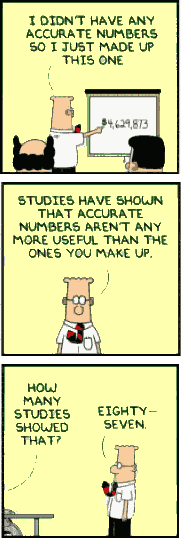
 The
real way to spot Made Up Stuff is to track down
the primary evidence. Ask "How do you know
that?" Keep asking. How
do you know P52 was written in 125 AD? Colin
Roberts said so. How did he know? Papyrology.
What facts did Colin Roberts use? Papyrology.
What evidence is there about the accuracy and
precision of papyrology? Colin Roberts said
so.
The
real way to spot Made Up Stuff is to track down
the primary evidence. Ask "How do you know
that?" Keep asking. How
do you know P52 was written in 125 AD? Colin
Roberts said so. How did he know? Papyrology.
What facts did Colin Roberts use? Papyrology.
What evidence is there about the accuracy and
precision of papyrology? Colin Roberts said
so.